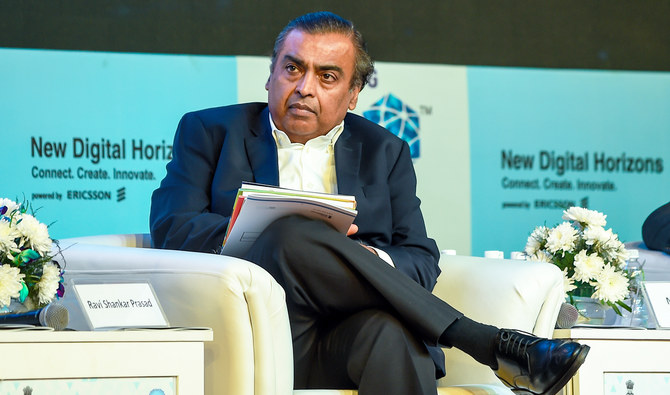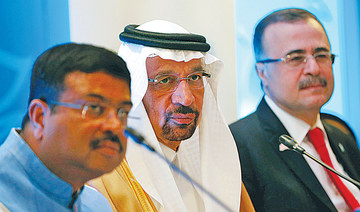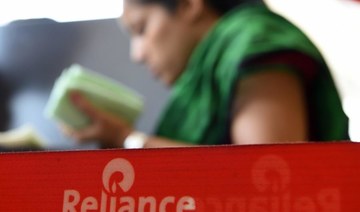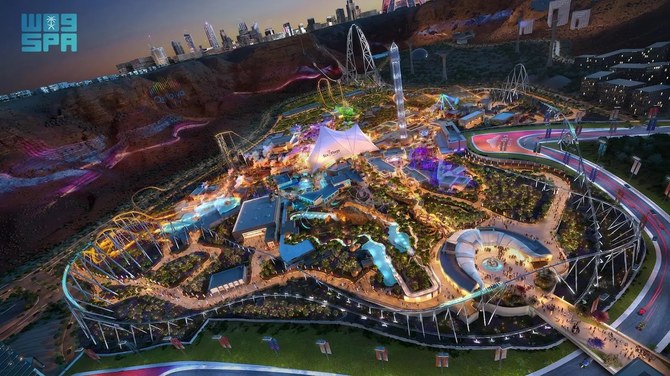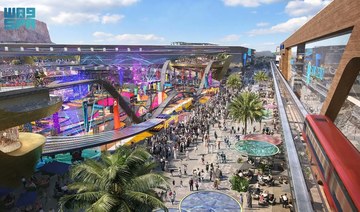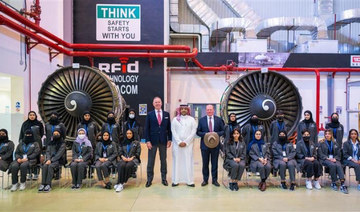NEW DELHI: India’s Reliance Industries’ deal to sell a 20 percent stake in its oil to chemicals business to Saudi Aramco will reap major dividends for both companies, analysts said.
Under the terms of the non-binding deal announced earlier this week, the conglomerate will get roughly $15 billion for the 20 percent stake, money that it will use to pare its massive debt load. Reliance has an overall debt of nearly $42 billion including $20 billion at its fibre division which the group is currently in talks to sell.
In exchange, Reliance will buy up to 500,000 barrels a day of crude oil from Aramco, more than double its current purchase.
Reliance chairman and the country’s richest man, Mukesh Ambani, said that the company had been processing Saudi crude oil every single day for the past 20 years and this deal, among the largest foreign investments in India, signified “perfect synergy between the world’s largest oil producer and the world’s largest integrated refinery and petrochemicals complex.”
The deal will cover all of Reliance’s refining and petrochemicals assets, including 51 percent of its petroleum retail joint venture.
Reliance has been on the lookout for strategic partners for its businesses to help it in its goal of reducing its debt, said Ajay Bodke, chief executive officer, portfolio management services at Prabhudas Lilladhar, a brokerage. “Reliance has become a net debt company from a net cash company. Whatever money that flows in from this deal will be used by Reliance to deleverage,” he said. It’s “a marriage made in heaven because you have the largest oil explorer in the world tying up with India’s largest oil to chemicals company,” he added.
Gagan Dixit, vice president institutional equities research at Elara Capital, agreed that the deal will give Reliance “much needed capital.” Plus, “refining is a dying business and they can use this money for the high margin business of chemicals,” he said.
That apart, historically Reliance has bought oil from Iran and Venezuela, both of which are under US sanctions. This deal helps Reliance secure its supplies and ensures Aramco that additional business as well, said Dixit. Aramco has been beefing up its business in Asia, especially with some of the large importers of crude oil. With the US, the world’s largest consumer of energy, depending less on Saudi Arabia for oil, Aramco needs new markets to hedge its bets. India, one of the largest energy consumers in the world after the US and China, fits the bill.
This deal provides Aramco with a steady customer in the midst of global uncertainty in the oil and gas sector, said Anirban Mukherjee, a partner at the Boston Consulting Group. “There’s merit in a producer like Aramco wanting to lock in a large market. India is a very consumption-led economy in the petrochemical sector and it will continue to be a large importer of oil, so this is a good match between producer and market. Rather than a simple supplier-buyer compact, if an oil exploration company has partnerships with some of the large refineries, there’s a permanence to the business.”
This is not Aramco’s first investment in India. In 2017 it opened an office in the Indian capital to expand the company’s international portfolio in this growth region. Last year it announced a joint venture with a consortium of Indian state-owned refiners to set up a $44 billion refinery and a petrochemical project on the country’s western coast.
The proposed refinery, which is yet to take off, is expected to have a total capacity of 18 million tons a year and will process up to 1.2 million barrels of crude oil a day as well as refined petroleum products including petrol and diesel. The proposed project has been billed as among the world’s largest refining and petrochemicals projects and one that has been designed to meet India’s fast-growing demand for fuels and petrochemicals.
The Aramco deal is the latest in a series of moves by Reliance to sell non-core assets or establish joint ventures to reduce debt. Speaking to shareholders, Ambani said the group will become a zero net debt company within 18 months.
Ahead of the Aramco deal, Reliance announced a joint venture with global oil major BP to set up a nationwide network of fuel retail outlets where Reliance will have a 51 percent stake, to cash in on rising demand in the country. It will also market aviation turbine fuel to cater to India’s growing aviation industry.
“Our transactions with Saudi Aramco and BP will create win-win relationships, generating significant strategic value for our partners,” Ambani said.



